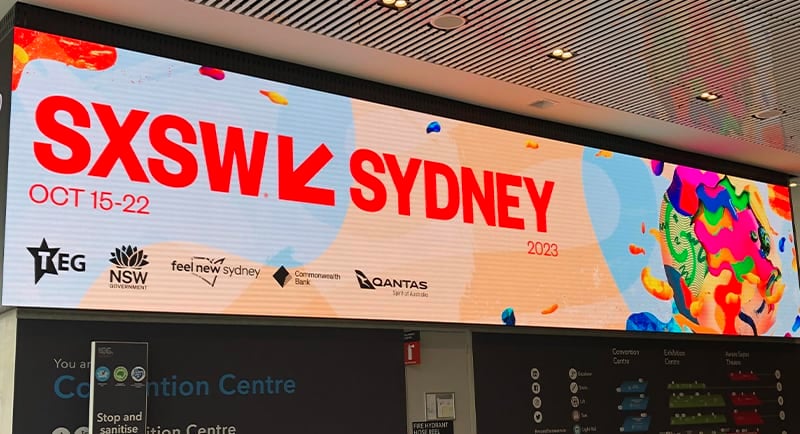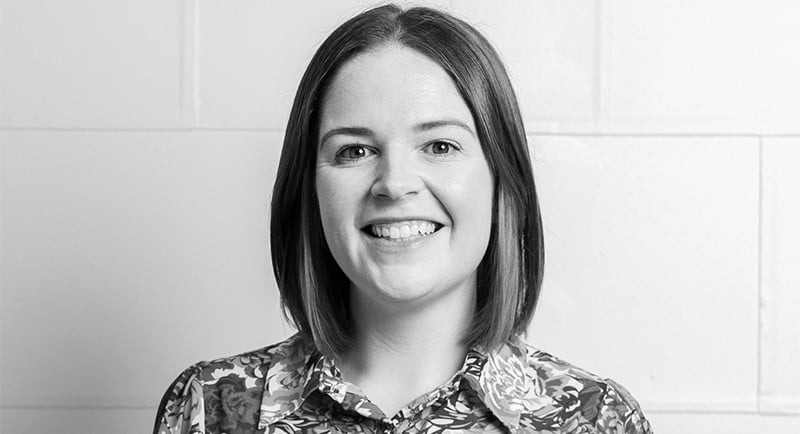By Emilia Chambers, Head of Strategy, The Pistol
A wide range of topics were discussed across the week at SXSW, but it was AI that stood out as the focal point of a large portion of the 600+ speakers that took to the stage. And the feeling that I walked away with was that we can see the value but we’re still confused and cautious about the role of AI and the true benefit of the technology.
There was no disputing that AI can make us more efficient and improve processes
Utilising AI to create faster, scale bigger and remove limitations that currently hold us back, was consistently mentioned as ways that AI is positively impacting our industry and how we use the technology to really have it all.
David Droga, CEO of Accenture Song, spoke about how by utilising AI in the creative process, we can unlock the power of pace, quality and affordability at the one time; a concept which has been unattainable up until this point with many brand and agencies needing to decide what two are the most important, and what they need to sacrifice. Droga explained that: “Technology can allow us to do all three, you can do things at pace, you can do things that are high quality, and you can do that at an affordable cost.”
Droga also talked about how technology has the opportunity to remove the ‘mediocre middle’; the tasks and outputs that often aren’t adding value, not delivering on outcomes and often are a result of past processes that people haven’t questioned. Through the utilisation of AI, the mediocre middle can either make these tasks more valuable and impactful or remove the need for them to exist altogether through efficiency improvements.
The key to making AI work for what you need is to focus on the outcome you want and not how you have approached things in the past. Don’t be afraid to completely rebuild a process if you have the opportunity to do things better and smarter. Those who are willing to embrace AI and use the technology to challenge how they approach tasks, are likely to see the greatest success.

The beneficial role of AI in the creative world is still uncertain
While many of the sessions throughout the week spoke to the value of AI and benefits of technology advancements overall, there was an undertone of concern, especially in the creative space, around what impact technology would have on the thinkers and creators of our industry.
Charlie Brooker, creator of Black Mirror, expressed his concerns about the future of technology and the role that AI will play in creativity and specifically the creation of video content. He acknowledged that, while much of his award-winning series covers distressing scenarios brought on by an over-reliance on technology, he did personally hold concerns around technology’s threat to creativity. Using a real life example, Brooker spoke about the time he used ChatGPT to write a Black Mirror episode and was initially shocked at how well it could replicate the formula and style of a typical episode, before realising that there was no substance to the idea. ChatGPT was merely recreating episodes rather than building out a never before used idea, highlighting the importance of humans for creativity and true ideation.
While Brooker’s concerns were not expressed by all, it is clear that more needs to be done to better understand the role that AI can play in the creation of ideas and content. A healthy level of skepticism is valuable, ensuring that tech is being utilised to enhance creative output and not quash creative thinking.
When we talk about being replaced by AI, we can’t forget the additional risk women face
Often when the topic of AI comes up, the following conversation is around innovation, adaptation and generally how we can do things better. But we need to ensure that we don’t forget about the impacts of AI beyond output.
Robyn Foyster, CEO of Foyster Media, moderated an all-female panel discussion on machine learning and AI entrenching gender inequality for future generations of women. The panel pointed out that the jobs that AI is likely to impact the most, and even remove the need for humans completely, were statistically more likely to be held by women. The risk we face is that if we don’t put systems in place to educate both the current workforce and the future workforce on the skills they need for emerging roles, we risk that the gender skill and pay gaps could widen significantly.
This doesn’t mean that we should halt on the utilisation of technology to evolve our processes and roles, but we do need to ensure we understand the impact on our staff and have a plan in place around what the future of our workforce looks like as advancements in technology begin to play a more significant role.
By the end of SXSW Sydney, it was clear that AI is causing a seismic shift in our processes and outputs, and deserves the airtime that it’s had this year. But we’re a long way from cracking exactly the role it should play and how much of our industry we’re willing to hand over to AI. AI is a big opportunity to work smarter, to produce more and to make space to think. But it also comes with risks around diversity, privacy and losing the human aspect of what makes our industry great. The balance of opportunity and risk is critical to get right but the future is, nevertheless, bright.
